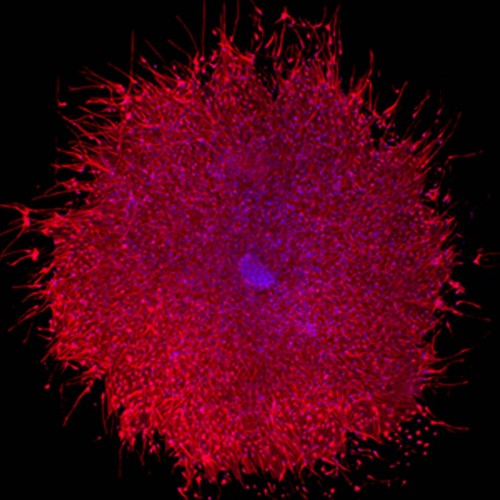 Results of four research trials investigating new targets for therapies in Alzheimer’s disease, and incorporating novel approaches to participant identification and selection, were reported at the Alzheimer’s Association International Conference® (AAIC) 2013, July 13-18, in Boston.
Results of four research trials investigating new targets for therapies in Alzheimer’s disease, and incorporating novel approaches to participant identification and selection, were reported at the Alzheimer’s Association International Conference® (AAIC) 2013, July 13-18, in Boston.
The trials involve four compounds that target physical changes in the brain associated with the development and progression of Alzheimer’s disease. Two drugs are intended to reduce brain inflammation, one is thought to inhibit the production of an abnormal protein in the brain known as beta-amyloid, and the fourth promotes brain cell regeneration.
“The Alzheimer’s disease epidemic is here. It is vital that we accelerate the pursuit of novel ideas and strategies to treat and prevent Alzheimer’s disease,” said Maria Carrillo. Ph.D. Alzheimer’s Association vice president of medical and scientific relations. “While many of the trials reported at AAIC 2013 are still in early stages, they represent a promising diversification of the Alzheimer’s treatment pipeline and translate to new hope for a world without Alzheimer’s disease in the future.”
School of Pharmacy Professor Roberta Diaz Brinton, the R. Pete Vanderveen Chair in Therapeutic Discovery and Development, presented her work on Allopregnanolone and the phase 1 trial that will test the compound as a regenerative therapy.
According to Brinton, both aging and Alzheimer’s disease are characterized by a decline in the ability of the body (including the brain) to self-renew and repair, but the capacity for regeneration is retained, albeit at a decreased level.
Allopregnanolone (also known as Allo) is a neurosteroid found in the brain and bloodstream. In previous studies, it has shown promise as a potential regenerative therapy to promote brain cell creation and improve cognitive function in older animals and animal models of Alzheimer’s disease.
At AAIC 2013, Brinton reported the design of a phase 1, multiple ascending dose, clinical trial of Allo in participants diagnosed with mild cognitive impairment due to Alzheimer’s and mild Alzheimer’s, with doses administered once-per-week for 12 weeks to establish a safe and tolerated dose. Because Allo is naturally expressed in the brain and reaches relatively high levels during the third trimester of pregnancy, the scientists were able to advance beyond the time limits of a typical first stage of safety testing.
Secondary goals of the trial include assessing potential short-term effects of Allo dosing on cognition and MRI indicators of Alzheimer’s disease and informing a subsequent Phase 2 proof of concept trial with MRI-based biomarkers of regenerative efficacy.
“Allopregnanolone is a well-characterized agent with a very promising track record of promoting neural stem cell generation and restoring cognitive function in animal models of Alzheimer’s,” said Brinton. “We consider Allopregnanolone a first in class regenerative therapeutic for mild cognitive impairment and Alzheimer’s. Our hope is that, through further research, we will add Allo to the roster of Alzheimer’s treatments.
“A critical issue to consider for potential regenerative therapies for Alzheimer’s is the ongoing and progressive burden of brain cell death caused by the disease. It is not sufficient solely to generate new neurons and to promote their survival; it is necessary to reduce the ongoing burden of pathology for there to be long-term benefits for cognition and function,” Brinton added. “We were very encouraged to discover that Allo reduced the burden of Alzheimer’s pathology. Our latest findings are very exciting as they show that Allo increases the energy capacity of the brain. This is important because the generation of new neurons, new synaptic circuits and synaptic transmission all require substantial energy.”
Brinton’s work is supported by the National Institute of Aging and the Kenneth T. and Eileen L. Norris Foundation.
Other key presentations at the conference included Joel Ross, Memory Enhancement Center of America, and colleagues at Chiesi Pharmaceuticals; Mark Forman and colleagues at Merck Research Laboratories; and Kathleen Welsh-Bohmer of the Joseph and Kathleen Bryan Alzheimer’s Disease Research Center at Duke University Medical Center and colleagues at Zinfandel and Takeda Pharmaceuticals International.
The Alzheimer’s Association International Conference is the world’s largest conference of its kind, bringing together researchers from around the world to report on and discuss research and information on the cause, diagnosis, treatment and prevention of Alzheimer’s disease and related disorder.
(Excerpted from the Alzheimer’s Association release on the Alzheimer’s Association International Conference, July 14, 2013.)

